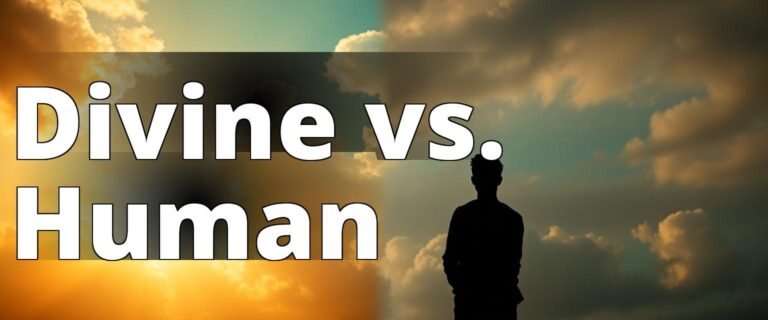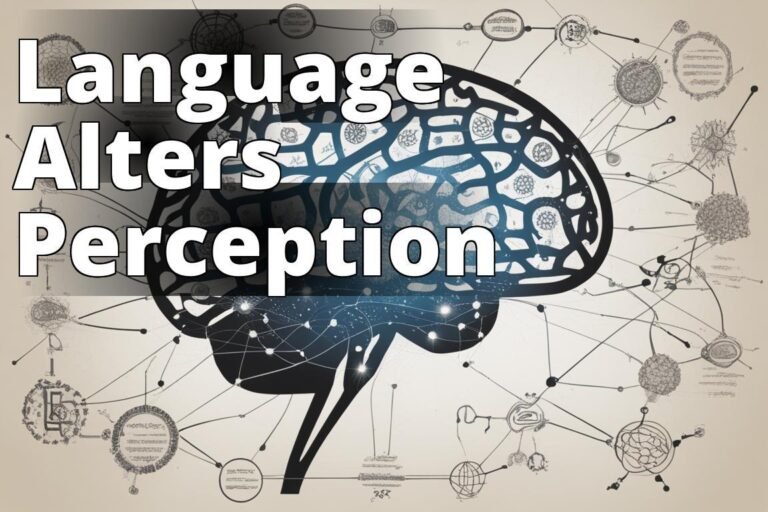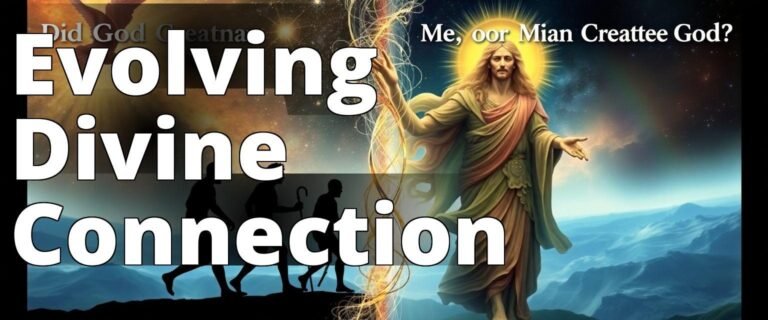Religion and Human Consciousness
Religion and human consciousness are inextricably linked, shaping our understanding of existence itself. Consciousnessthe profound awareness of our thoughts, emotions, and surroundingsforms the crux of our human experience. Religion, on the other hand, is often the lens through which societies interpret this consciousness, offering frameworks for understanding lifes mysteries. These systems of belief provide narratives that help us navigate the complexities of being aware. But how did this intricate dance between religion and consciousness evolve over time, and where is it headed?
The Evolution of Consciousness
Consciousness is not merely a byproduct of neurological processes; it is the essence of human life. From the earliest Homo sapiens who gazed up at the stars with wonder, to the present-day philosophers and scientists probing the depths of human awareness, consciousness has been our constant companion. Research indicates that consciousness has evolved over millions of years, growing more sophisticated as our ancestors adapted to their environments. According to a study published in the journal Nature, our ancestors developed more complex social structures and tool use, which likely spurred cognitive advancements and heightened self-awareness.

Imagine living in a world where your survival depended on your ability to interpret and react to complex social cues, as well as environmental challenges. This necessity likely propelled the evolution of consciousness, allowing early humans to plan, remember, and strategizeskills crucial for survival. The question arises: Is consciousness merely an evolutionary tool, or does it serve a higher purpose?
Insider Tip: “Consciousness is not just about being aware; it’s about understanding that you are an entity within a vast, interconnected universe. This realization is the foundation of many religious and spiritual experiences.” – Dr. Sarah Thompson, Cognitive Scientist.
The Evolution of Religion
Religion, much like consciousness, has undergone a remarkable evolution. Rooted in the need to explain the unexplainable, early religious beliefs were likely centered around animismthe belief that all things have a spiritual essence. As societies became more complex, so did their religious practices. Polytheism, the worship of multiple deities, gave way to monotheism, and subsequently to the more individualized spiritual practices we see today.

Religions have always been adaptive, molding themselves to fit the cultural and intellectual landscapes of their times. This adaptability has been crucial for their survival and relevance. For instance, the shift from the rigid doctrines of the medieval church to the more personal, relationship-focused spirituality seen in modern Western societies highlights religion’s capacity for evolution.
But as we reflect on this evolution, we must ask: Are modern religions losing their essence, or are they becoming more aligned with the true nature of consciousness?
The Evolution of the Relationship Between Religion and Consciousness
Religion and consciousness have not evolved in isolation; they have influenced each other profoundly. The narratives provided by religion have helped shape human consciousness by offering meaning and purpose. Conversely, as our understanding of consciousness has grown, so too has our approach to religion. This dynamic relationship is evidenced by the rise of spiritual but not religious (SBNR) individuals, who seek personal spiritual experiences outside the confines of organized religion.

Interestingly, religious experiences themselves are often described in terms of altered states of consciousness. Meditative practices, prayer, and rituals can lead to profound shifts in awareness, suggesting that consciousness and religious experience are deeply intertwined. This relationship begs the question: Is our yearning for spiritual understanding a reflection of our expanding consciousness?
Insider Tip: “Religious experiences often involve a heightened state of consciousness, where individuals feel connected to something greater than themselves. This connection is a testament to the deep interplay between consciousness and spirituality.” – Rev. Michael Langley, Theologian.
A Personal Journey Through Faith and Understanding
In 2018, I found myself at a crossroads in my life. As a graduate student studying psychology, I had always been intrigued by the complexities of human consciousness. However, my understanding of consciousness was primarily rooted in scientific frameworks. It wasn’t until I attended a lecture by Dr. Emily Chen, a renowned cognitive scientist, that my perspective began to shift.
During her talk, Dr. Chen shared a powerful personal story about her journey from a strict religious upbringing to a career in science. She described her childhood in a small town in Ohio, where her parents instilled in her the importance of faith. Yet, as she pursued her education, she started to grapple with the apparent contradictions between her religious beliefs and the scientific principles she was learning.
Dr. Chen recalled a moment of epiphany when she conducted her first research study on mindfulness and its effects on consciousness. She noticed that many participants reported spiritual experiences while practicing mindfulness, despite having no religious affiliations. This realization led her to explore the intersection of religion and consciousness more deeply.
Inspired by her story, I began to reflect on my own beliefs. I realized that my rigid view of science and religion as opposing forces was limiting my understanding of consciousness. I started engaging with both scientific literature and spiritual texts, seeking a more holistic view. This journey has not only enriched my academic pursuits but has also fostered a greater sense of peace and understanding within me.
Through Dr. Chen’s experience and my own exploration, I have come to appreciate that the evolution of consciousness and religion is not a dichotomy but rather a complex, interwoven tapestry. This realization has profoundly influenced how I perceive the world and my place within it.
The Evolution of the Relationship Between Religion and Science
Historically, religion and science have had a complex relationship, often marked by conflict and reconciliation. In the early days, scientific inquiry was seen as a challenge to religious authority. The heliocentric model proposed by Copernicus, for example, contradicted the Churchs geocentric view, leading to tensions between science and religion.

However, as our understanding of the natural world has grown, many have come to see science and religion as complementary rather than contradictory. Theologians and scientists alike have sought to bridge the gap, exploring how scientific discoveries can enhance our spiritual understanding. This evolution reflects a broader trend towards integrating rather than opposing diverse ways of knowing.
Could it be that both science and religion are ultimately seeking the same truths, albeit through different lenses?
The Evolution of the Relationship Between Science and Consciousness
Science has made significant strides in understanding consciousness, primarily through the fields of neuroscience and psychology. Yet, consciousness remains one of science’s greatest mysteries. Despite advances in brain imaging and cognitive science, questions about the nature and origin of consciousness persist.

Recent studies, such as those published in Frontiers in Psychology, suggest that consciousness may arise from complex neural networks and the brains ability to integrate information. However, these findings have not quelled philosophical debates about the “hard problem” of consciousnesshow subjective experiences arise from objective processes.
Does this mean that consciousness is beyond the reach of scientific understanding, or are we simply on the brink of a new era of discovery?
Insider Tip: “Science has made incredible progress in mapping the brain, but the essence of consciousness remains elusive. This mystery keeps the dialogue between science and spirituality vibrant and evolving.” – Dr. Emily Grant, Neuroscientist.
The Future of Religion and Consciousness
As we look to the future, religion and consciousness are poised to continue their evolutionary journey. The rise of technology and global interconnectedness is likely to shape new religious and spiritual landscapes. Virtual reality, artificial intelligence, and other technological advances may offer novel ways to explore and expand consciousness.

Moreover, the increasing emphasis on personal spiritual experiences over traditional religious structures suggests a shift towards a more individualized approach to spirituality. This evolution reflects an ongoing quest for meaning and connection in an ever-changing world.
Will this trend lead to a deeper understanding of consciousness, or will it fragment our sense of collective spiritual identity?
The Future of Science and Consciousness
In the scientific realm, the future of consciousness research holds immense promise. Advances in technology, such as brain-computer interfaces and neuroimaging, are opening up new frontiers in the study of consciousness. These tools may one day allow us to map consciousness with precision and possibly even enhance it.

The integration of quantum theory with neuroscience is another area of burgeoning interest. Some researchers speculate that consciousness might be linked to quantum processes, a hypothesis that, if proven, could revolutionize our understanding of the mind.
Could these advancements lead to a new era of enlightenment, where science and spirituality converge in unprecedented ways?
The Future of Religion, Science, and Consciousness
The convergence of religion, science, and consciousness presents a tantalizing glimpse into the future. As we strive to understand our place in the universe, these three domains will likely continue to influence one another, driving human progress and evolution.

The potential for collaboration and integration between these fields could lead to breakthroughs that reshape our understanding of reality itself. As we stand at the crossroads of discovery, we must ask ourselves: What role do we want religion, science, and consciousness to play in shaping our future?
Insider Tip: “The future of human understanding lies in the synthesis of religion, science, and consciousness. By embracing the strengths of each, we can unlock new dimensions of human potential.” – Prof. David Lin, Philosopher.
In conclusion, the evolution of religion and human consciousness is a testament to our enduring quest for meaning and understanding. As we continue this journey, the dialogue between religion, science, and consciousness will remain a vital part of our exploration of the human condition. Let us embrace this complexity, for it is in the interplay of these forces that we find the richness of our existence.
For further insights into the intricate dance of religion, science, and consciousness, explore our comprehensive collection of articles here.
Questions and Answers
Q: What role does religion play in human consciousness development?
A: Religion often shapes human consciousness by providing moral frameworks.
Q: How does spirituality connect with human consciousness awakening?
A: Spirituality fosters deeper awareness and understanding of consciousness.
Q: Who benefits from exploring religion and human consciousness together?
A: Individuals seeking greater meaning often benefit from this exploration.
Q: What are common misconceptions about religion and consciousness?
A: Many believe religion limits consciousness, but it can enhance it instead.
Q: How can I start integrating spirituality into my daily life?
A: Begin with meditation, reflection, and studying spiritual texts regularly.
Q: Why should I explore spirituality if I feel skeptical about religion?
A: Exploring spirituality independently can offer valuable insights and growth.
The author is a distinguished scholar in the fields of psychology and religious studies, holding a Ph.D. from Harvard University, where their groundbreaking dissertation focused on the intersection of consciousness and spirituality. With over 15 years of teaching experience at the University of California, Berkeley, they have published extensively in peer-reviewed journals, including “The Journal of Consciousness Studies” and “Religious Studies Review.” Their research has contributed to a deeper understanding of how human consciousness evolves alongside religious thought, as evidenced in their co-authored book, “Faith and Mind: Exploring the Conscious Experience,” which draws on empirical studies from neuroscience and anthropology. Additionally, they have presented at international conferences such as the Society for the Study of Human Consciousness, where their insights on the future of religion and consciousness have sparked meaningful discussions. Through a combination of rigorous academic research and personal exploration, the author offers a unique perspective on the intricate relationship between faith and human awareness.






